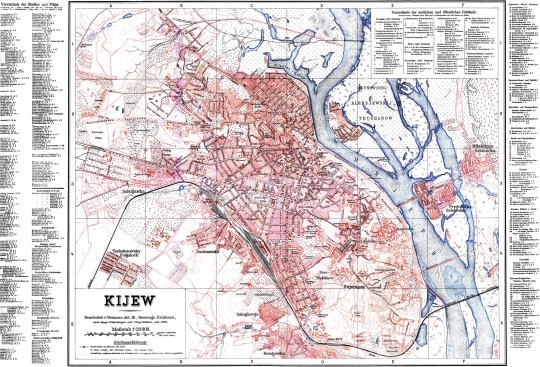#kyiv map
Photo

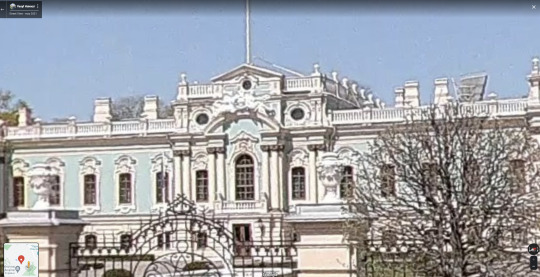
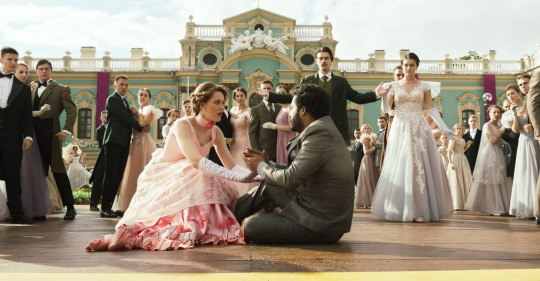
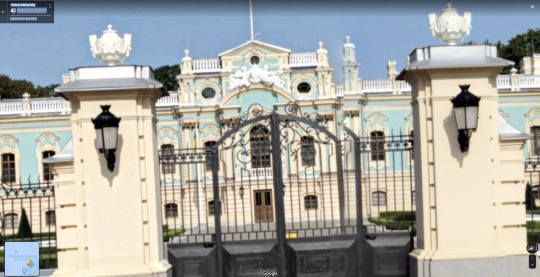

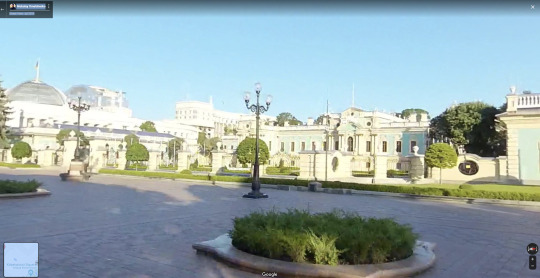
RRR (Rise Roar Revolt)
S.S. Rajamouli. 2022
Palace
Mariinskyi Palace, 5A, vulytsya Mykhaila Нrushevs'kogo, Kyiv, 02000 Ukraine
See in map
See in imdb
#ss rajamouli#rrr#rise roar revolt#kyiv#ukraine#mariinskyi palace#olivia morris#n.t. rama rao jr.#ram charan teja#ajay devgn#bollywood#musical#movie#cinema#film#location#google maps#street view#2022
60 notes
·
View notes
Text

Happy Dignity and Freedom Day, Ukraine!
#Ukraine#map#maps#map of Ukraine#slava ukraini#Україна#Kyiv#Kharkiv#Odesa#Dnipro#Donetsk#Lviv#Zaporizhzhia#Kryvyi Rih#Sevastopol#Mykolaiv#Mariupol#Luhansk#Vinnytsia#Simferopol#Makiivka#Chernihiv#Poltava#Kherson#Khmelnytskyi#Cherkasy
2 notes
·
View notes
Video
youtube
💩 Stremousov went crazy and recorded a video on the background of the map, where the russians occupy Kyiv
💩 Стремоусов збожеволів і записав відео на тлі карти, де руска окупує Київ
#youtube#💩 Stremousov went crazy and recorded a video on the background of the map where the russians occupy Kyiv 💩 Стремоусов збожеволів і записа
0 notes
Text
Kyiv (hopefully) renaming metro stations to scrub out our ties to the vile empire <3
and I know very well that renaming placenames is a can of worms with its pile of inconveniences, but I’d so much rather be inconvenienced by having to remember that “Druzhby Narodiv” (”[station of] The Friendship of [Soviet] Nations”) is now “Botanichna” (“Botanical [garden]”) instead of having to keep calling ANY place in Kyiv “of the friendship of Soviet nations”. these new names - Heroiiv Ukraiiny (”of the heroes of Ukraine”), Vasyl’ Stus (Ukrainian poet, replacing Leo Tolstoy station), Varshavs’ka (Warsaw), Buchan’ska (Bucha) - they’re names my city can wear with pride :-)
#ukraine#kyiv#all else aside russian cities are simply uncomfortable to look at on a map at times because they have SO MANY SOVIET NAMES! still there!!!#because they're proud of it - it's a point of pride! they kept their lenins and stalins and octobers and its so fucking weird to see#coming from Ukraine & being pretty young basically my whole conscious life all things soviet have been things 2 tear out at the root#and of course. of course that's russia's attitude. but FUCK does it grate the eyes just seeing an address from one of their cities
1 note
·
View note
Photo
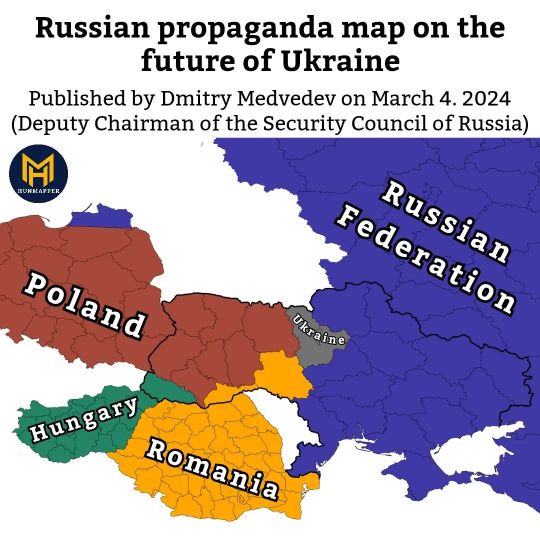
Russian propaganda map on the future of Ukraine
Published by Dmitry Medvedev (deputy Chairman of the Security Council of Russia) on March 4, 2024.
by hunmapper
Medvedev defined all territories on the left bank of the Dnipro River, and many on the right bank, as supposedly "integral" to Russia and within its "strategic historical borders." Russian forces currently occupy only a part of the eastern (left) bank of Ukraine but do not occupy any territory on the right bank of Ukraine. He presented his lecture against the backdrop of a self-created fantasy map of eastern Europe, depicting parts of western Ukraine under Hungarian, Polish, and Romanian control. The map shows Ukraine existing as a rump state only within the borders of Kyiv Oblast and the rest of modern-day Ukraine as part of Russia — well beyond the areas that Russian forces currently occupy, encompassing Crimea and the four partially occupied oblasts Medvedev claimed that the influence of sovereign great powers, like Russia, extends beyond their geographic borders, reiterating an earlier statement by the Russian dictator Vladimir Putin that "Russia's borders do not end anywhere" Additionally, he alleged that a state's "strategic borders," distinct from its geographical borders, depend on “how strong and sovereign” the state and its authorities are. The more "powerful" a state is, the “further its strategic frontiers extend beyond its state borders” and the larger the state’s sphere of “economic, political, and socio-cultural influence”
159 notes
·
View notes
Text
Old Kyiv
"Château de Fleurs"
In 1863, a French entrepreneur opened the entertainment venue "Château de Fleurs" (Castle of Flowers) on the site of the modern-day Dynamo Stadium. The cafe-chantant, as it was called in French style, housed a restaurant, concert halls for performances, a dance hall, a summer theater, and a beer bar. It also featured the city's only park with a paid entrance fee of 40 kopecks on the busiest days. Dining at "Château de Fleurs" was also available only by subscription, costing from 9 to 15 rubles per month, depending on the number of meals one could have per day.
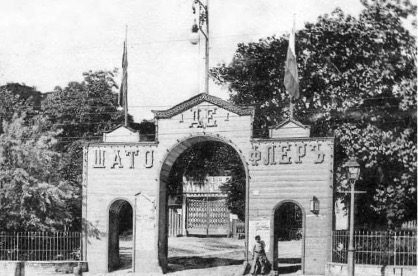
The name of the park fully reflected its concept. The park was adorned with flower beds featuring a wide variety of flowers.

Every season at the Château was marked by the emergence of a new pop star, a new spectacle, or attraction.

Ivan Nechui-Levytsky( Ukrainian writer, one of the founders of Ukrainian realism. His works are known for their depth and humanism)described the Château in his novella "Clouds":
..."At the Château, there was a grand celebration. The posters announced that that evening there would be Tyrolean songs sung in the garden, then fireworks would be set off, and at the end, Bengal lights and a fireworks display. A large crowd gathered! The entire Château in the valley was filled with masses of people."
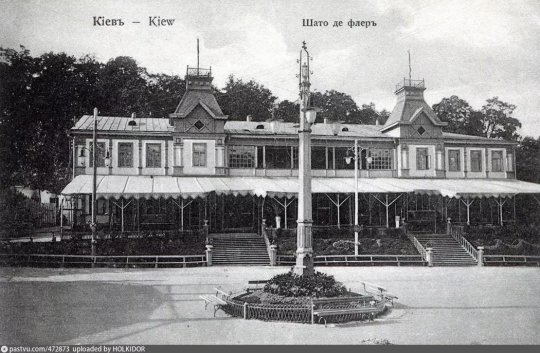
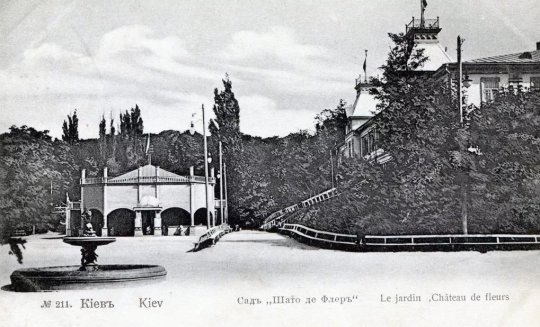
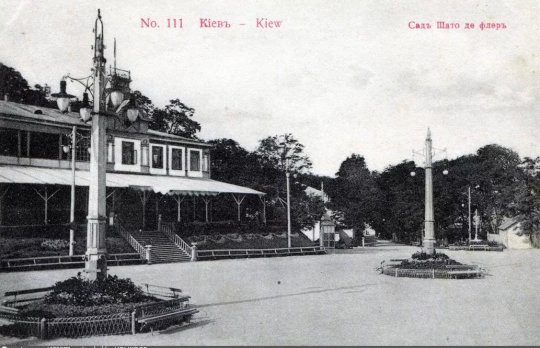
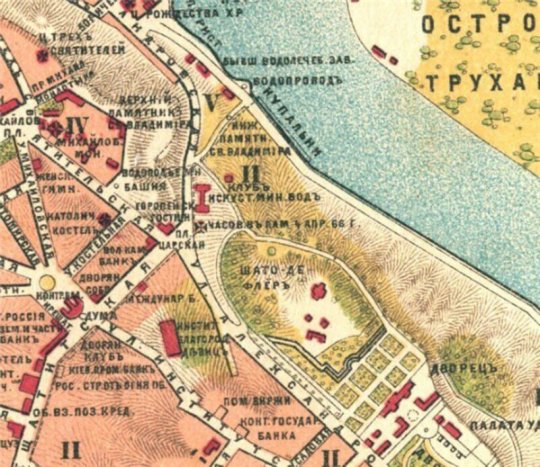
Шато Де Флер👆
An old map where the Château de Fleurs still exists
Château de Fleurs closed in 1894 due to financial difficulties and changes in management. Later, Dynamo Stadium was built on its site.
#old photography#ukraine#vintage photography#ukrainians#old ukraine#old kyiv#vintage photo#vintage#château de fleurs#kyiv#garden#ukrainians on tumblr#україна#photo of ukraine#photo on tumblr#old photos#stand with ukraine#pray for ukraine#archive photos#archive#photo#photography#vintage photos#ukrainian architecture#oldness#1860s#dynamo#dynamo stadium#українці#history
70 notes
·
View notes
Text
misread a prompt about being the last human on earth. still wrote a short story. enjoy.
My name is Sophie Smith. I am the last human on earth, and this is my report for June 28, 2070, day 456 of monitoring. General population: one. Changes since the last report: none. Maintenance work completed.
I save the file for today's report on my memory implant and shift my focus back to the monitor in front of me. A familiar black screen with a familiar white outline of the world map. One small red dot keeps blinking on it, in the middle of a region described as "European Union."
If you were to zoom in, you would see that it is located in the middle of a town called Berlin, marked as the capital of a state called Germany.
Not that those things still mean anything anymore.
Zooming out again and seeing the empty map, it seems strange they ever did.
At the beginning back in 2069, there used to be 8.9 Billion red dots. One for every beating heart, monitored from above by space-link satellites. Now only mine remains.
I had singed up to monitor them quite early after the omega variant broke. After wasting years of my life on a - in face of the apocalypse utterly worthless - degree and an even more worthless PhD thesis, it felt like doing something real, and the task was simple: Monitor the development, stay in touch with the other stations all around the world and file a report for each shift.
At first, there were many of us, all in some way believing that we would help save humanity by observing trends and giving out warnings. Instead, we just became the chroniclers of it's decay.
Many didn't even fully witness the first month. The virus was cruel, but at least it took you fast.
You could leave your house feeling great in the morning, only to collapse coughing on the sidewalk before arriving at your bus stop. Or you could get up to make tea in the isolation of your own home, all doors closed and windows shut, and grasp for air on the kitchen floor minutes later. There was no cure, no vaccine, no distancing measure that helped.
The virus cut through us like a scythe through a field of weeds, and it soon was more than clear that no amount monitoring would change that.
Some volunteers quit. More died. But through a weird twist of fate, I stayed alive.
And I kept going to work, day after day after day, even after the government that had hired me stopped existing, the subway train I used to take became a fighting ground for rats and my shadow was the only one left to walk beside me in the once busy city streets.
And so did the others, who, when I called in "here Berlin, please respond" answered me with "here Warsaw" "here Seoul" "here Mexico-City" "here Tel Aviv".
And the less we were, the more we talked.
About our lives before. About the people we had loved and lost, about the places we had called home and the dreams we had dreamed, about our favourite books and movies and dishes, about god and fate and about which birds who saw outside their window.
Mostly, I think, it wasn't about what was spoken. It was about hearing another human voice, and the reassurance that you weren't alone that came with it.
And so, we were there to witness as one by one, more of the blinking red dots disappeared.
Just like one by one, someone else among us started to cough. It was an unwritten, unspoken and yet unbreakable rule that none of the rest commented when it happened. Some decided to ignore it until their last moments. Most said goodbye.
One of us, Alexey, fircely insisted the air in his office was simply too dry when he got the cough. Of course, we all wanted to believe that it was.
But only minutes later, the transmission from his channel ended, and one of the at this point 5 remaining red dots in Kyiv vanished.
Like all of theirs did, eventually.
And yet.
"Here Berlin, please respond", I whisper. For the protocol. For the false, poisonous hope that there has been some kind of bug in the system and that someone might still answer.
Of course, no one does.
And even though I expected it, the following silence crushes me once again. A lonely tear rolls down my cheek as I rip the headphones off. Just like the voices in them used to be the undeniable proof that I wasn't alone, the static in the channel now is the undeniable proof that I am.
To distract myself, I get up and open the window.
It would be easy to jump onto the empty street and make a final exit like that.
All things considered, it's a miracle I am still sane enough to not consider this opinion.
Even though… probably at this point death would be the sane choice.
But something in me still wants to keep going, wants to hold out for as long as I can.
It might be irrational, but I feel like this is what I am owe them. All 8.9 Billion.
Unaffected by my dark thoughts and humanities decay, a small sparrow lands on the window stil. It must have flown over from the tree across the street, where a family of them has build their nest.
Diah would have loved to hear that their little ones are now learning to fly.
Diah. She was last one to leave, and the pain of loosing her still feels like a fresh wound. It had only been us for quite some time, and we had stopped logging out or even taking off our headphones. We even, of course disguised as jokes, had started planning how we could meet. We could find a still functional high-speed train and somehow make it work. We could both steal cars. We would just start walking towards each other and meet in the middle between New Delhi and Berlin.
But of course, we wouldn't. And when her time came, the virus didn't even give a warning.
One moment, I was listening to her beautiful voice. The next, there was silence. And only one blinking dot left on the monitor.
Maybe she didn't even notice that she died.
Only I did. Like I noticed so many deaths before. Maybe that is the only advantage of my situation now. The only death I still will have to witness is my own.
Before I can sink deeper into my thoughts, suddenly, I see them. Or to be precise, actually, I hear them first. Voices. Human voices.
"I still can't believe it's only been two years since we left," one of them says, "Just look at this mess. Good thing we got out of here early."
"Right?!" the other one responds laughing. "And I thought the time on board was stressful, especially towards the end. But it's nothing against whatever the hell happened here."
Humans. Walking, talking, joking humans.
This can't be real. I rush to look at the monitor. Still only one lonely dot. I must have finally gone insane, not being able to stand the thought that I was last anymore. But when I lurk outside again, they are still there, and now close enough for me to recognize more details. Black uniforms with a silver star, black face masks and both carrying a PreciseWeapon. Space-link personal.
Days ago, Diah and I both saw what we had believed to be a small meteor. Instead, it must have been their shuttle entering the atmosphere. I am not insane. This makes sense. This is real.
I know that probably should feel relief. Or happiness. Or pride. It surely would make sense to feel that way. After all, I just learned that humanity might still prevail despite everything.
This should be a triumph, or least salvation. And yet, all it feels like is betrayal. "Two years since we left" the man had said. Two years ago, the omega variant hadn't even been discovered. Or at least so I had thought.
'Thank God we got out of here early.'
They knew all along, soon and well enough to "get out early".
If the earth had been a house on fire during the last years - as often depicted in political cartoons back when there were still people who drew such things and other who looked at it- they had always known the fire would come. But instead of warning the rest of us, they had snuk out of the house at night, watching it go up in flames from a safe distance. And now, where the dust had settled, they had come back to inspect the ruins and dig through the remains.
Only that I was still here. A living dead, covered in ashes with burns on my skin. Still breathing, but surely not nice to look at. So why would they come to pick me up now?
Suddenly, the dominos cascade in line and I sink back into my chair as the realization hits me. They are space-link. The satellites are space-link. They don't show up on the monitor because they are not supposed to. And the PreciseWeapon is meant for me. I shiver.
That's why Diah died so sudden and silent.
The virus didn't get her. They did, with one precise shot in the back.
For a moment, I consider running. But just a moment. They could easily track me, and I don't want to spent my last moments being dragged out of a hiding place, nor do I want a bullet in the back.
No.
I want them to look me in the eye. And I want them to know that I know.
I get up from my desk and turn away from the black monitor with the lonely red dot.
The door swings open, and the black uniforms enter.
They look just like you would think they'd look. Painfully ordinary, with faces reddened by excitement.
For just a moment, I see a hint of surprise in their eyes. Then, the uniform on the right nods at the uniform on the left, who reaches for his weapon. If he feels any doubt, he is good at hiding it.
"Go ahead."
I say. My voice is calm and firm. I can't say much, not in the short time it takes him to charge, aim and fire. But what I say, I mean.
"I already died 8.9 billion times. One more won't matter."
I feel a numb pain as the projectile hits my chest, and then the edge of my table as I stumble backwards against it.
And then, just before I hit the ground and my senses fade, I hear it. A cough. A familiar, dry cough. A cough I heard more times than I could count. And that is now coming from the direction of my shooter.
My name is Sophie Smith. I am the last human on earth. And this concludes my final report.
#Writing#writers on tumblr#My writing#Short story#I really want to post this but I am also scared... really hope you like i#Please reblog if you do#Death tw
868 notes
·
View notes
Text
George Beebe, Director of Grand Strategy at QI, highlighted the perils of extrapolating a “stalemate” from the current lack of significant battlefield movements in Ukraine. “Those who believe this war has settled into a long-term stalemate make the mistake of measuring the relative progress of each side with maps. They see that the frontlines have not moved significantly over the last year and conclude that the sides are stalemated,” Beebe told me.
“But other metrics, though, paint a different picture. Ukraine is using up its quite limited supplies of men, weapons, and ammunition, and the West cannot provide what Ukraine needs. That is not a formula for stalemate; it's a formula for Ukraine's eventual collapse or capitulation,” he continued.
A purely cartographical view of the Ukraine war neglects key military factors, including differentials in manpower and resources, attrition rates, and logistics challenges, that many experts say are not unfolding in Ukraine’s favor.
“Despite everything that’s happened, despite all the stuff we have given, the Bradley’s, the M1 [Abrams] tanks, Patriot air defense systems, the Challenger tanks, the Leopard [tanks], all those things, nothing changed at all except the casualty count,” said former U.S. Army Lt. Col. Daniel Davis, Senior Fellow and Military Expert at Defense Priorities and host of the Daniel Davis Deep Dive.
“While the lines haven’t changed, I don’t call it a stalemate because I think time is continuing to work against Ukraine,” he said in an interview, noting the stark year-on-year decline in U.S. military aid to Ukraine. He added:
“Biden is only shooting for $60 [billion dollars] for the whole FY [fiscal year] instead of $113 billion, so even if gets every penny that he’s asking for, it’s going to be half what it was last year, and we’ve given all the excess equipment that we have. Anything we give now comes out of the muscle, out of the bones, and I don’t think we’re going to give up that much more stuff, certainly not at the level they need to replace all their losses”
Davis noted that the continued lack of sufficient output in Western ammunition production means that Ukrainian troops will face mounting munitions shortages.
“They’re not going to have the ammunition to continue to wage a stalemate,” he added. Davis compared dwindling Ukrainian stocks with Russia’s expanded domestic production of critical munitions and drones. Kyiv’s munitions woes were recently compounded by the diversion of up to tens of thousands of 155mm shells, originally slated for Ukraine, to Israel in the weeks following the outbreak of the Israel-Hamas War.
“The next year, and probably into this winter, I don’t think it’s unreasonable to expect the Ukrainian army, at some point along the front, to actually buckle,” warned Davis.[...]
Recent suggestions in the West of a stalemate and looming “frozen conflict,” though a stark change in tone from the kind of rhetoric that characterized the war as late as the summer of 2023, still does not reflect what experts describe as the severity of challenges facing the Ukrainian war effort.
Right.... "Stalemate" where....that implies an equality in force deployment capacity.....Stalemates are active not passive.....quickest way to decisively end a stalemate is to run out of weapons and ammo....time to either put up [read: full military deployment] or shut up [read: end the war from the position of the weaker combatant]. [27 Nov 23]
83 notes
·
View notes
Text
From the seventh floor at Kherson State University, Oleksandr Khodosovtsev and Ivan Moisienko had a clear view of the enemy. It was a cool December morning, and the Russian troops that had occupied the Ukrainian city of Kherson since the earliest days of Moscow’s full-scale invasion had recently retreated east across the Dnipro River. Mushroom clouds hung over the horizon as they gazed through the rattling floor-to-ceiling windows of the botany department. The explosions, they thought, were likely coming from the tanks less than 5 kilometers away from where they stood.
That morning, the pair—both professors of botany—had arrived on the train from Kyiv and made their way through the partially ruined streets of Kherson to reach the university. The city was still being shelled, and to access their laboratory meant scaling a spiraling stairwell lined with stained-glass windows looking out over the Dnipro River, towards the enemy.
Their mission was to rescue a piece of history: the Kherson herbarium, an irreplaceable collection of more than 32,000 plants, lichen, mosses, and fungi, amassed over a century by generations of scientists, some from thousand-kilometer-long treks across remote areas of Ukraine. “This is something like a piece of art,” says 52-year-old Moisienko. “It’s priceless.”
Herbaria like the one in Kherson, a port city in the south of Ukraine, are about more than just taxonomy. They serve a vital role in the study of species extinction, invasive pests, and climate change. Though it's by no means the world’s largest—the Muséum National d’Histoire Naturelle in Paris has 9,500,000 specimens—Kherson’s herbarium is, Moisienko says, valuable because of its unique contribution to the field. Rare species found only in Ukraine, some of which are at risk of extinction, are documented on its shelves.
When Russian tanks rolled into Ukraine on February 24, 2022, they threatened not only the thousands of dried, pressed, and preserved specimens stored at the university, but the land where those samples had been collected. In the more than 17 months since Vladimir Putin declared his “special military operation” in Ukraine, millions of acres of land—about 30 percent of the country’s protected areas—have been maimed by indiscriminate bombing, burning, and military maneuvers. Russian troops have scorched tens of thousands of hectares of forests and put more than 800 plants at risk of extinction, including 20 rare species that have mostly vanished from elsewhere, according to the non-profit Ukraine Nature Conservation Group (UNCG).
The Ukrainian government estimates that a third of the country’s land has been contaminated by mines or other unexploded ordnance. Large swathes of the countryside could remain inaccessible for decades to come. That means it could be a long time before scientists like Khodosovtsev and Moisienko can go back out to collect samples.
The pair weighed up these considerations last fall, as they contemplated returning to the hollowed-out city of Kherson. Russian forces had been pushed out of the city in November but continued to bombard it. Between May and November, at least 236 civilians were killed by shelling, according to regional officials. Regardless, Khodosovtsev and Moisienko decided to go in.
“There is no need to risk anyone's life to save some equipment or a building,” Moisienko says, noting with passing remorse how he’d been pained to leave behind one of his prized microscopes. “For this collection, when it's gone, it's gone. There is no way to get it back.”
As the pair began mapping out the evacuation, they determined that in order to mitigate risk on the ground they needed to limit both the number of people and time spent inside the besieged city. There would never be more than three team members—Khodosovtsev, Moisienko and one of their two colleagues—on a trip, and each venture would last no more than 72 hours. The power grid went down regularly, and there was a citywide curfew of 4 pm, meaning they had hard deadlines to get in and out of their lab. And there was bureaucracy. “During the wartime, even to get around the country, you need to have some substantiation, like documents,” said Khodosovtsev, 51.
That got even more complicated when, on their first trek back to the university that December, they discovered that Russian troops had taken up residence in four of the rooms storing part of the plant collection.
Besides the deep sense of violation the botanists felt, this also posed a procedural problem. The “sitters”—a common expression for enemy soldiers who have occupied a Ukrainian building—had changed the locks on all but one of the doors, and the spaces now needed to be documented; a mandatory procedure typically carried out by the local police. Thankfully, their logistics team pulled some strings and got the process expedited. In just a few weeks, the locks had been changed again, and the rooms had been photographed for the official records.
In video footage capturing that first, largely fruitless trip, Khodosovtsev can be seen celebrating the return of one of the 24 more valuable boxes with a kind of enthusiasm typically reserved for the football pitch. “Collemopsidium kostikovii is saved!” he cheers as he raises his fist over his head. “To the sound of explosions!” he adds, as the rumble of mortars interrupts his brief moment of self-congratulation.
Limited resources, another knock-on effect from the ongoing conflict, also threatened to upend the men’s carefully laid plans. While Moisienko drove around to dozens of Kyiv’s home hardware stores in search of plastic boxes to transport the collection’s vascular plants, Khodosovtsev returned to Kherson equipped with little more than a headlamp strapped across his brow and a backpack filled with the same household tools you might use to move apartments.
On this second trip, the magnitude of the task became clear to Khodosovtsev. He had 700 boxes to evacuate. On his first incursion, it had taken him 15 minutes—and way too much tape—to wrap, stack, and rope together half a dozen boxes of samples. At this rate, the botanist said, he’d be blowing past the three days earmarked for this section of the herbarium. Never one to be discouraged, the scientist settled into familiar territory and began doing what he does best: calculating.
“Just two wraps of sticky tape and one roll of rope,” he said, beaming as he reveled in how he’d managed to shave his box-stacking time to just “three and a half minutes.”
This kind of methodical precision proved to be a helpful distraction from the realities of what was going on just beyond the paned glass. A mere 24 hours before Moisienko returned for his third and final trip on January 2, he learned the building where he planned to scoop up the last portion of the herbarium was hit by shelling. Instead of this news derailing his mission, it only seemed to harden him. “We are focused on [the herbarium] so much that you just ignore everything, all these shellings that [are] going on around you,” he said.
Even so, as he worked methodically, packing plant after plant, he started to contemplate how the glass windows of the lab could become deadly projectiles if a shell went off nearby; and how far it was down to the ground floor. At eight stories tall, the academic building sticks out. “The chance the Russians would hit the university building [was] really high,” he says.
He tried to treat the nearby rumbling as white noise, though one day, a shell landed just outside the window as he was packing a sample.
By January 4, Moisienko had finished loading up the last boxes of the collection into the back of a truck. It traveled west for nearly two days, covering approximately 1,000 kilometers, before reaching Vasyl Stefanyk Precarpathian National University in Ivano-Frankivsk in Western Ukraine, the institution that has served as a university in exile for the staff and students of Kherson State University for more than a year.
It’s a kind of safety. But, as Moisienko points out, only as safe as anything or anyone can ever be in a country where missiles fall out of the sky on a near daily basis. “Nowhere in the country is 100 percent safe,” he says.
On January 11, Kherson State University was once again struck by shelling, this time only blocks away from where Moisienko had been working less than a week earlier. “That building remains [in] danger, and it's still dangerous to be in Kherson as it’s shelled still now on a daily basis,” Moisienko says. “We've done the right thing.”
231 notes
·
View notes
Photo
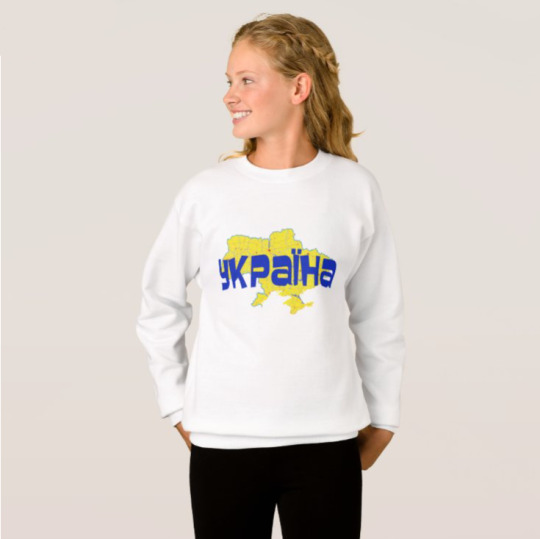
Happy Day of the Defender, Ukraine!
#Ukraine#Україна#Kyiv#Київ#Lviv#Luhansk#Kharkiv#Kherson#geography#map#map of Ukraine#country map#sweatshirt#sweater weather#activewear
1 note
·
View note
Text
Google Maps has updated photos of the cities of the Kyiv region
Gorenka is one of the most affected settlements. It is destroyed by 70%.
The village of Moschun, 3 km from the capital, has also been practically wiped off the ground.
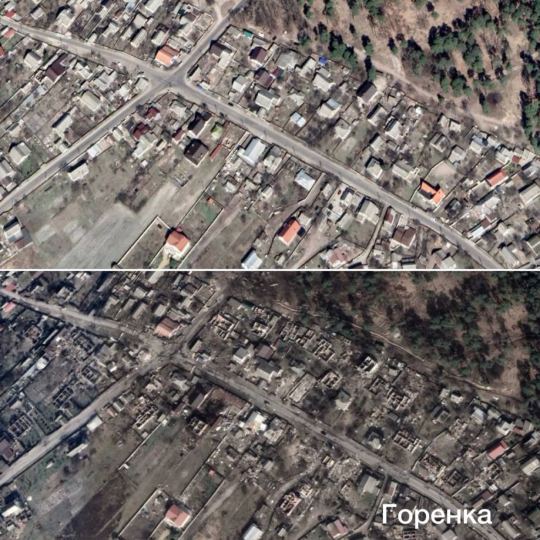
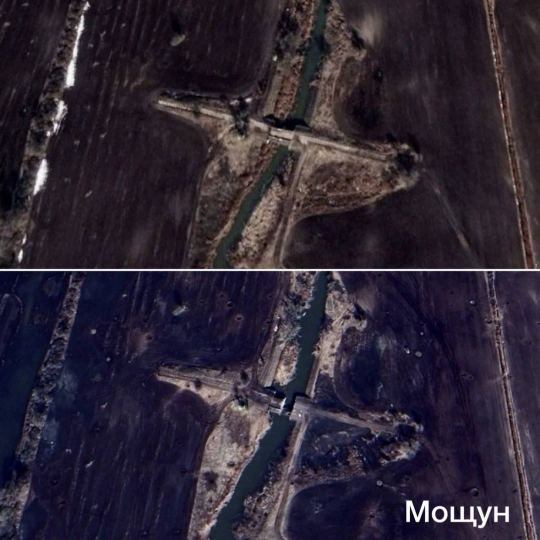
#ukraine#russia is a terrorist state#russia invades ukraine#russian war crimes#russia ukraine war#russian invasion#russian agression#russian terrorism#russia
94 notes
·
View notes
Text
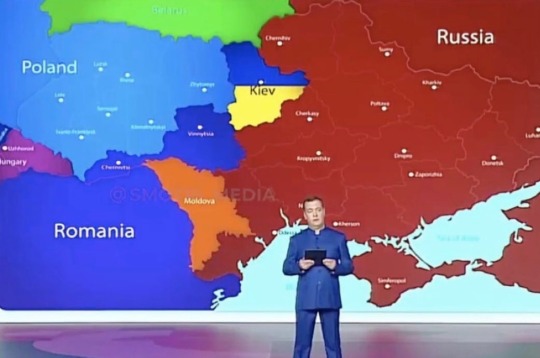
The fact this map has "Chernihiv, Kharkiv, Dnipro, Luhansk, Kropyvnytsky".... but not Kyiv. XDDDDD
#linguistics#what a goddamn losers lmaooooo#Ukraine#stop russian aggression#support ukraine#genocide of ukrainians#russia is a terrorist state#maps
24 notes
·
View notes
Text
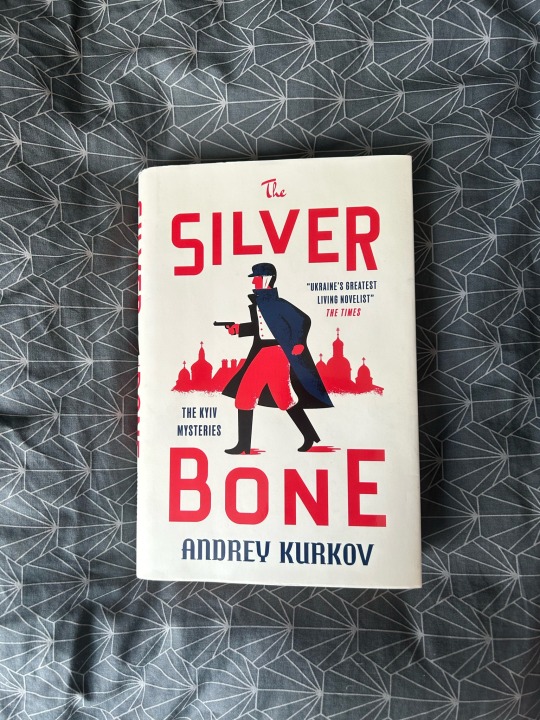
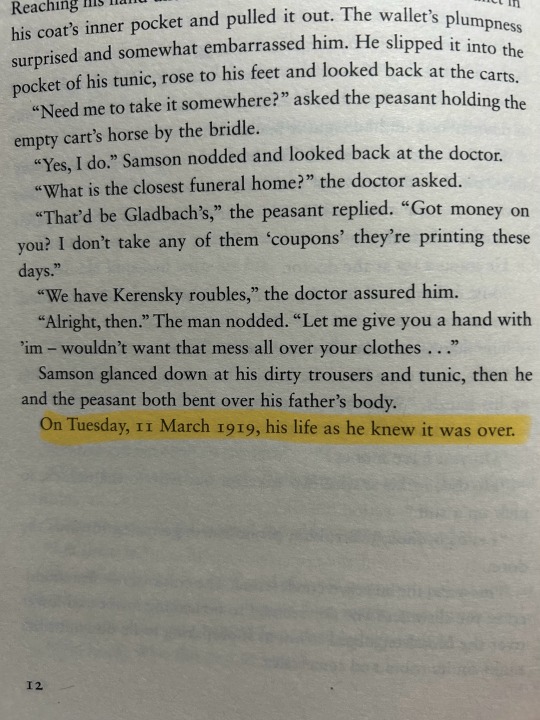
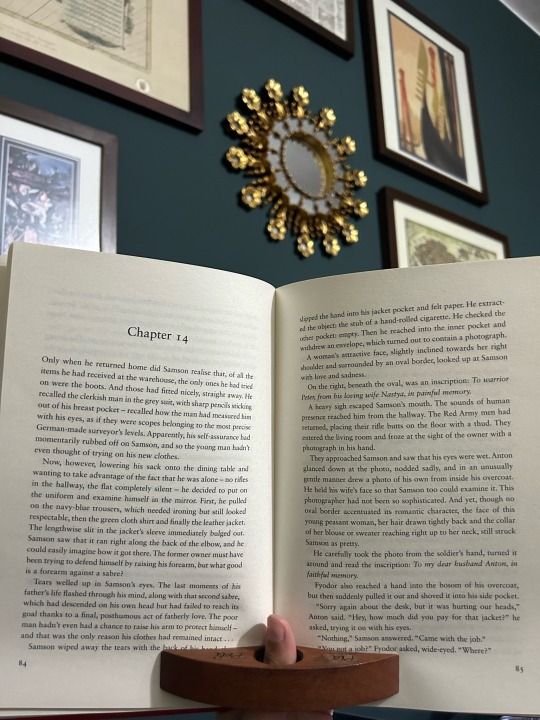
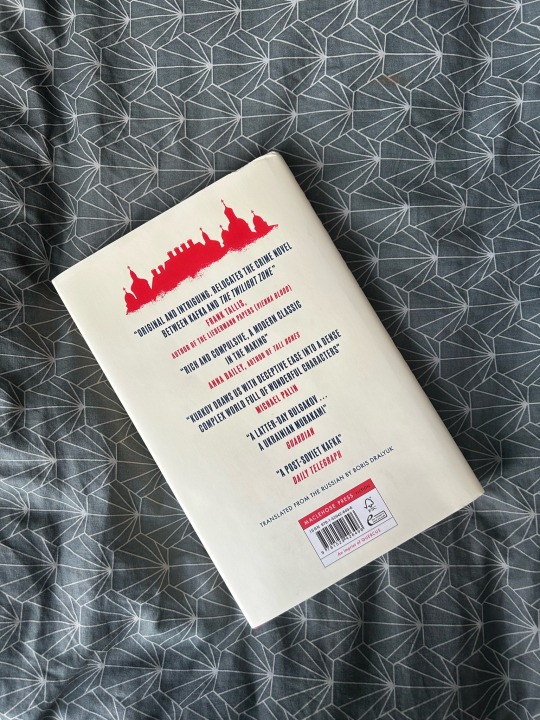
The Silver Bone
4.75/5⭐️
Written by Ukrainian author Andrey Kurkov, the first book in The Kyiv Mysteries series marks his return to fiction after over a year of writing about the ongoing war back in his home country. Before I go on to talk about the story itself I just want to say something, I LOVE MAPS ON BOOKS, they're my guilty pleasure and JUST LOOK AT IT!
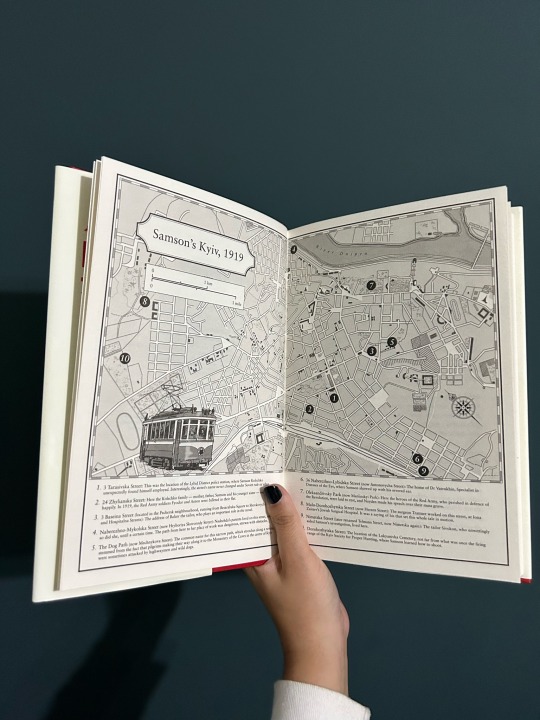
ALSO SPOILERS AHEAD SO PROCEED WITH CAUTION!!
Ok, so starting with how gut wrenching Samson's father's death is, and we don't really get to know much about him, just that he saved his son from death but ended up dying himself.
The way Kurkov writes about early soviet Kyiv and the struggles of a mid-war life as well as the life of the main character helps us understand and empathise with Samson but not feel pity for him. As I read and reached the 100 page mark, I found myself feeling both proud and excited for what he would accomplish; I felt for him at the beginning with such a change in his life but as the pages went on, he grew up in the sense that he tried his best to rise up to the situation and also, speaking about how he is written now, not fall into weird clichés some main characters from mystery novels sometimes fall into like being know it alls and extremely lucky when going through the respective mystery. The ending marks the great beginning of a series and the case was wrapped up just fine. I overall enjoyed this book and look forward to the next book in the series.
#studyblr#studygram#studyspo#studying#mine#studymotivation#study#student#studyday#university#bookish#bookblr#booklr#books#books & libraries#bookworm#book#reading#book lover#bookreview
15 notes
·
View notes
Text
My next post in support of Ukraine is:
Next site, on this 38th anniversary of the Chornobyl Nuclear Disaster, we're visiting the Chornobyl Exclusion Zone (Зона відчуження Чорнобильської АЕС). The Chornobyl Nuclear Power Plant Zone of Alienation. It was first established by the soviet armed forces at an area of 30 km (19 miles) radius around the power plant. That has since been extended to an area of 2,600 km (1,000 square miles) around the power plant. There is also an area in neighboring Belarus known as the Polesie State Radioecological Reserve, which was created to enclose the area most affected by the disaster in Belarus. The area of Ukraine, where the disaster happened, was a largely rural area with woodlands and marshlands and was home to about 120,000 people, many of whom lived in the cities of Chornobyl and Pripyat. There were also about 187 smaller communities in the area. All of the communities are still listed on maps, but they are listed as uninhabited. While the area is still one of the most radioactively contaminated places on earth, the natural plants and wildlife of Ukraine have returned, and the area now has "some of the highest biodiversity and thickest forests in all of Ukraine. This is due to the lack of human activity in the Exclusion Zone and is despite the radiation." The soviet authorities at first tried to cover up the disaster. The 30,000 residents of Pripyat weren't evacuated until the day after the disaster. And, by April 29, radiation levels in Sweden were starting to climb to dangerous levels. The authorities also insisted that the May Day Parade in Kyiv still be held so things would appear to be normal, even though radiation levels in Kyiv were extremely high by that time. The Chornobyl Disaster and how the soviet union dealt with it was one of the issues that helped lead to the collapse of the soviet union in 1991.
#StandWithUkraine
#СлаваУкраїні 🇺🇦🌻
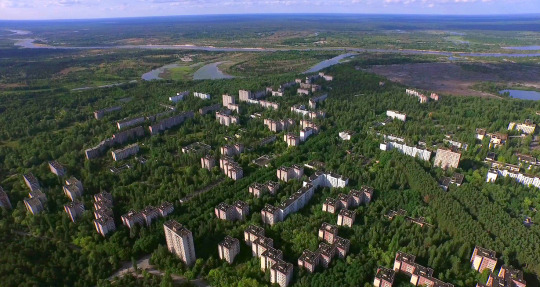



10 notes
·
View notes
Text
If we want a prosperous Ukraine with a viable path toward liberal governance and European Union membership, we will have to concede that it cannot be a NATO or U.S. ally, and that this neutral Ukraine must have verifiable limits on the types and quantities of weapons it may hold. If we refuse to agree to those terms, Russia will quite probably turn Ukraine into a dysfunctional wreck incapable of rebuilding itself, allying with the West, or constituting a military threat to Russia.
Russian progress is not yet evident on the map, where the battle lines have not moved appreciably over the past year. Ukraine’s counteroffensive failed to break through Russian defenses, and Russia has not pushed Ukrainian forces significantly westward. An observer comparing territorial holdings in January 2023 with January 2024 might reasonably conclude that the war has become a stalemate.
But this picture is misleading. The Kremlin is almost certainly not seeking such a breakthrough, at least not yet. Rather, it is methodically grinding down Ukraine’s capacity not only to wage war, but also to reconstitute a post-war military, by killing and wounding enormous numbers of Ukrainian soldiers and exhausting Ukrainian and Western arsenals of arms and ammunition. Ukraine is running short of artillery shells, and the U.S. and Europe cannot manufacture new ones quickly enough to meet Ukraine’s needs. Russian barrages of long-range air and missile strikes are increasingly overwhelming the capacity of Ukrainian air defenses, and the West simply lacks the ability to continue providing Patriot missiles or other advanced air defense systems.
It is quite true, as the Biden administration has warned, that ending U.S. aid to Kyiv would quickly result in Ukraine’s collapse. Sufficient aid to help Ukraine to stand successfully on the defensive should therefore continue. But what U.S. policymakers need to understand and honestly acknowledge is that absent a compromise peace settlement, massive levels of aid will have to continue not just for the coming year, but indefinitely. There is very little realistic chance of the West being able to outlast Russia and force it to accept peace on Ukrainian terms. The controversies in Congress over aid to Ukraine reflect these realities and are unlikely to diminish.
Under such circumstances, for the Biden administration to pledge American support to Ukraine for “as long as it takes” to defeat Russia is unwise, and even dishonest. It is widely believed in Washington that the failure of Ukraine’s counteroffensive means that the West has no choice but to back Ukraine’s fight against Russia for many years to come. Seeking compromise with Moscow is regarded as not only undesirable but also futile. Lacking alternatives, we must stay the present course, hoping that time will improve Ukraine’s position.
But time is not on Ukraine’s side, either militarily or economically, and so Ukraine’s position in any future negotiations may well be very much worse than at present. Russia’s population is at least four times that of Ukraine and its GDP 14 times. The Russian army is far better led and more tactically adept than it was at the start of the war, and Western sanctions show no signs of being able to cripple the Russian economy, which is more and more geared for war.
And whatever Brussels may say, as long as the war continues it is exceptionally unlikely that Ukraine will be able to develop economically and begin the extremely difficult process of joining the European Union.
Most importantly, the United States has not tested the assumption that Russian President Vladimir Putin has no interest in talking. It is indeed very likely that Putin believes Russia now has the upper hand in the war and can afford to wait. Nonetheless, Putin has repeatedly insisted that Russia is ready to talk, and also that Washington – not Kyiv – makes the key decisions in the war and therefore it is for Washington to engage in talks.
This may be posturing; but it is also possible that Putin recognizes that absent a settlement, Russia is headed toward the dangers of a permanently volatile confrontation with the West, an economy distorted by the demands of military production, and a constricting degree of dependence on China. Russians’ concerns about these problems are likely to grow as their fears they may lose the war in Ukraine diminish.
It is further alleged that Putin believes that a future Donald Trump presidency would be the Kremlin’s best hope for a settlement on Russian terms. However, Trump’s first term produced some friendly rhetoric but much hostile action toward Moscow, including withdrawal from nuclear arms agreements and increased flows of U.S. weapons and training for the Ukrainian army.[...]
Given that Russia now has the advantage on the battlefield and senses that time is on its side, to get Putin to end the war and end his ambition to subjugate Ukraine or seize more territory, Washington will have to offer some serious incentives. These will need to include showing that the U.S. is prepared to meet Russian concerns about the U.S. and NATO security threat to Russia (concerns that are genuinely held throughout the Russian establishment).
This will mean agreement to a Ukrainian treaty of neutrality, with security guarantees for Ukraine, that will allow that country to follow neutral Finland and Austria during the Cold War and develop as a free market democracy. Western sanctions against Russia would need at least to be eased if not suspended, but with a binding commitment that they would automatically resume if Russia launched new aggression.
An agreement along these lines would be extremely painful for both Ukraine and the Biden administration. However, we should see preserving the independence of 80 percent of Ukraine as a real victory, even if not a complete one. It is certainly far better than what appears to be the alternative: a war of attrition with dreadful losses for Ukraine, leading sooner or later to a far greater Ukrainian defeat.
11 Jan 24
52 notes
·
View notes
